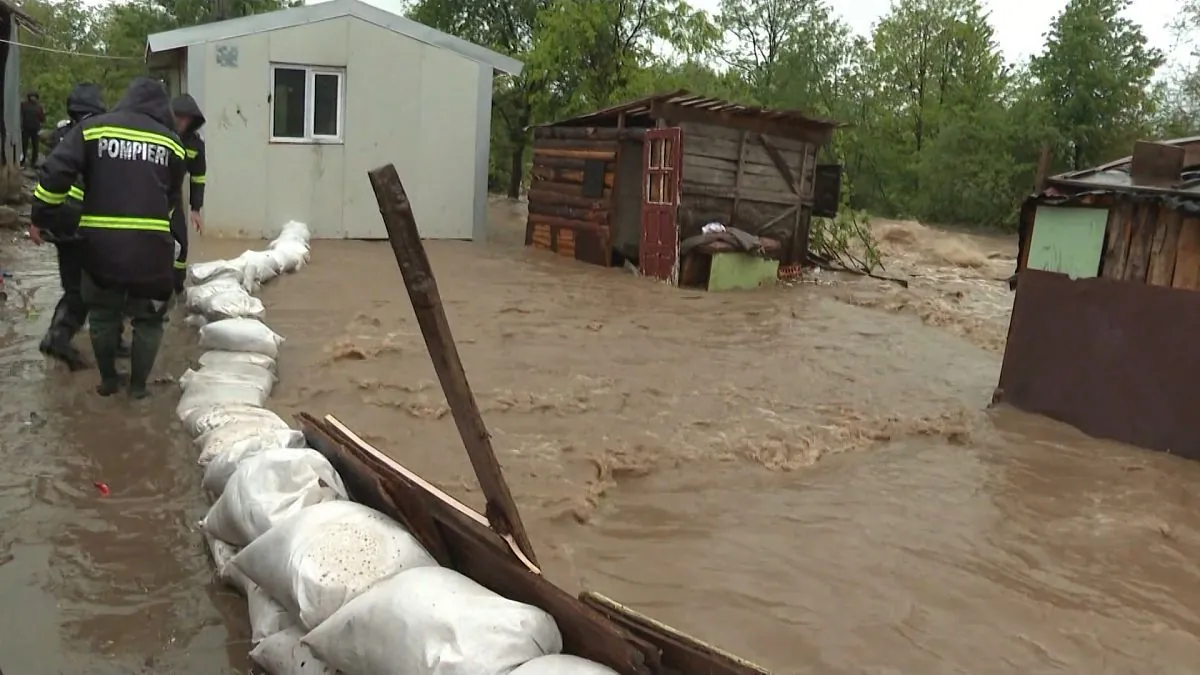Central and Eastern Europe Braces for Severe Flooding
Heavy rainfall causes fatal floods in Romania and puts multiple European countries on high alert. At least four deaths reported as rivers swell and towns prepare for potential inundation.

Severe weather conditions have triggered widespread flooding across Central and Eastern Europe, with Romania bearing the brunt of the impact. As of September 16, 2023, at least four individuals lost their lives in eastern Romania due to torrential downpours, according to the country's emergency response unit.
The deluge affected 19 villages across eight counties in Romania, prompting Prime Minister Marcel Ciolacu to visit the hard-hit Galati county. The Environment Ministry reported an extraordinary rainfall of over 150 liters per square meter within a 24-hour period in the affected areas.

The flooding crisis extends beyond Romania's borders, with neighboring countries also on high alert. Czech Republic, Poland, Slovakia, Hungary, southern Germany, and parts of Austria are bracing for more precipitation in the coming days.
In the Czech Republic, authorities have taken precautionary measures in Prague, a city that experienced catastrophic floods in 2002. The capital has erected flood barriers along the Vltava River, which runs through its historic center, a UNESCO World Heritage site.
Towns along the Czech-Polish border have initiated evacuations as river levels surpass alert thresholds. In the southwestern Polish town of Glucholazy, firefighters have deployed hundreds of sandbags alongside a swollen river, while some residents have been moved to safety.
"We are working tirelessly to protect our citizens and their property from the rising waters. The situation remains critical, but we are prepared to face this challenge."
This weather event highlights the vulnerability of the region to extreme precipitation. Romania, which joined the European Union in 2007, is particularly susceptible due to its diverse topography, including the Carpathian Mountains and the Danube River along its southern border.
The flooding also affects countries with significant water features. Hungary, home to Lake Balaton, the largest lake in Central Europe, and Slovakia, whose capital Bratislava sits on the banks of the Danube, are both monitoring the situation closely.
Southern Germany, including Bavaria, and eastern Austria, part of the flood-prone Pannonian Plain, are also preparing for potential water-related emergencies. These areas, influenced by Alpine weather patterns, often face challenges during periods of intense rainfall.
As the region confronts this immediate crisis, it's worth noting that Central and Eastern Europe have a long history of managing water resources. The Czech Republic, for instance, boasts over 24,000 ponds, many created for fish farming, while Poland's Oder River forms part of its western border with Germany.
Authorities continue to monitor the situation closely, with meteorologists forecasting additional rainfall. The coming days will be crucial as countries work to mitigate the impact of these floods and protect their citizens from further harm.


































